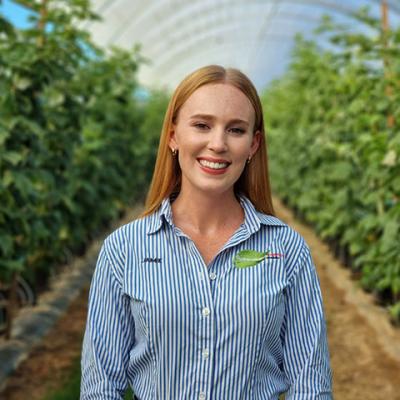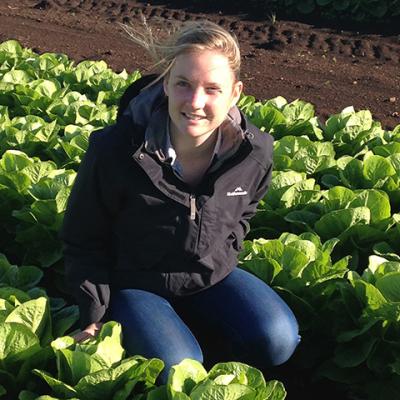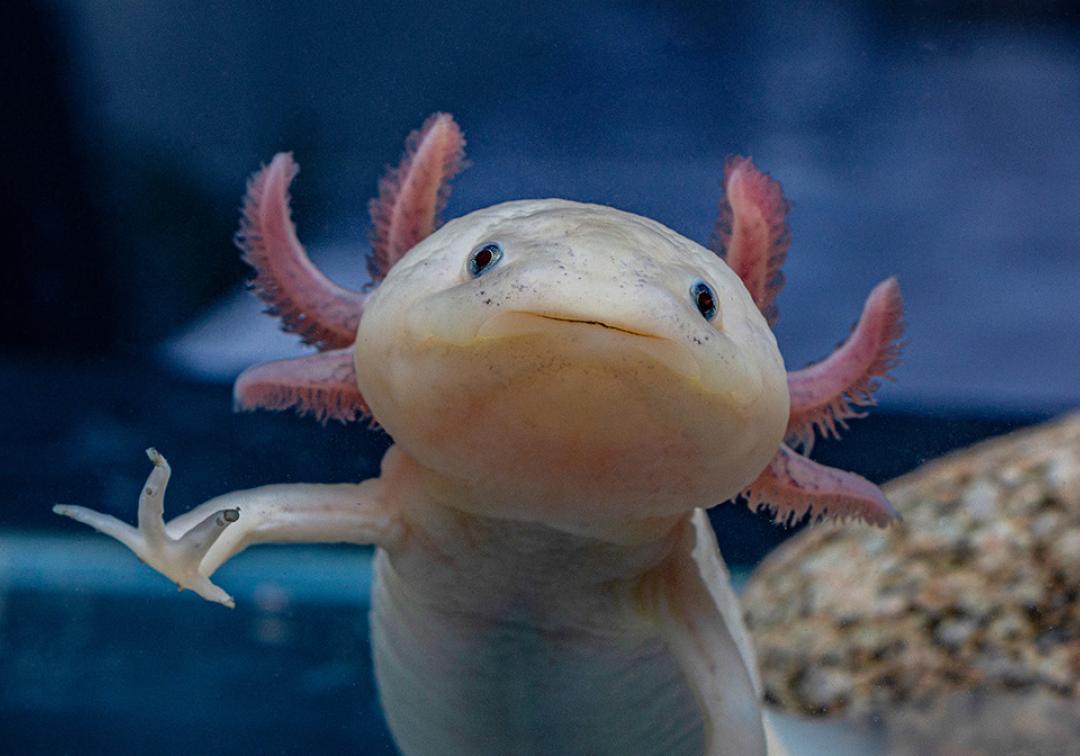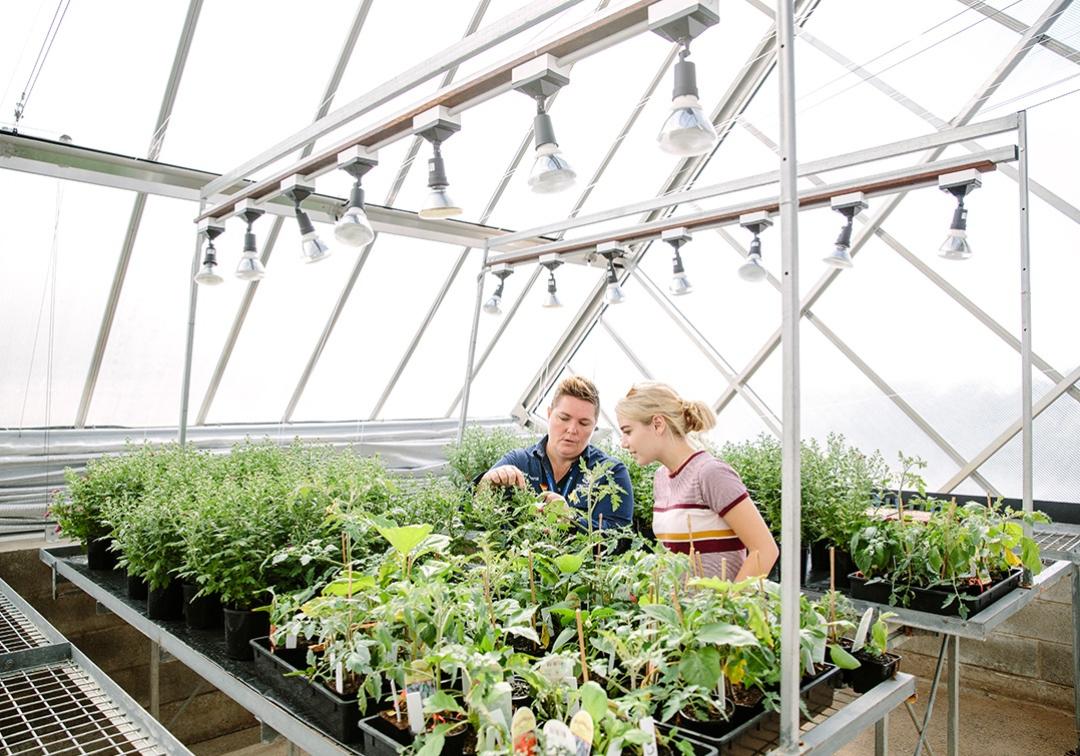
Horticulturists play a vital role in cultivating plants that provide us with food, improve our environment, and enhance our quality of life.
Horticulturists manage everything from pruning trees and optimising fruit sizes to ensuring year-round production and meeting supermarket demands. They also focus on sustainability by improving soil health, plant genetics, and minimising chemical use to run farms effectively.
In this hands-on major, you’ll study how to grow different types of plants like fruits, vegetables and flowers using field and protected cropping practices.
You'll also learn how plants can be used to improve the environment by cleaning the air, conserving soil, supporting biodiversity and helping to cool urban areas.
Participate in hands-on practicals, industry visits and field trips to local fruit, vegetable and flower producers throughout your degree, and gain in-demand practical skills and industry connections.
Take advantage of a 120-hour industry placement where you apply theory to practice, or enhance your research skills with the Summer and Winter Research Programs.
Make the most of a smaller cohort experience and spend valuable time in the lab where you’ll learn scientific techniques in plant breeding, biochemistry, physiology and propagation. This will help you enhance plant yield, quality, nutritional value, and resistance to insects, diseases and environmental stresses.
You’ll have access to some of the best plant science teaching and research facilities in the Southern Hemisphere, including over 1,000 hectares of farmland, advanced research nursery and glasshouse facilities, and a pesticide wind tunnel facility.
Career possibilities
Our programs prepare you for your first job and beyond. Here are some of the careers you could be on your way to:
- Horticulturalist
- Propagator
- Arborist
- Plant scientist
- Crop scientist
- Horticultural nursery assistant
Average annual salary range
Agronomist
seek.com.au
Average annual salary range
Farm Manager
seek.com.au
Next steps after graduation
The agriculture sector contributes billions of dollars annually to the Australian and international economies.
You will find diverse career opportunities in organisations such as:
- local, national and international agribusiness companies such as agricultural service companies, banks, seed companies, food producers and agricultural consultancies
- research institutions, including universities and CSIRO
- local, state or federal government departments
- biosecurity, extension and animal production enterprises
- small- or large-scale organisations involved in production, post-harvest and marketing of horticultural products
- feed mills, stock equipment manufacturers, and livestock and poultry health companies within allied industries.
Alternatively, you can further your research ambitions by applying for a 12-month honours program.
Events
See all events
29 June
Queensland Biology Winter School, Year 12

1 July
International Baccalaureate Research Skills Program
Stories
See all stories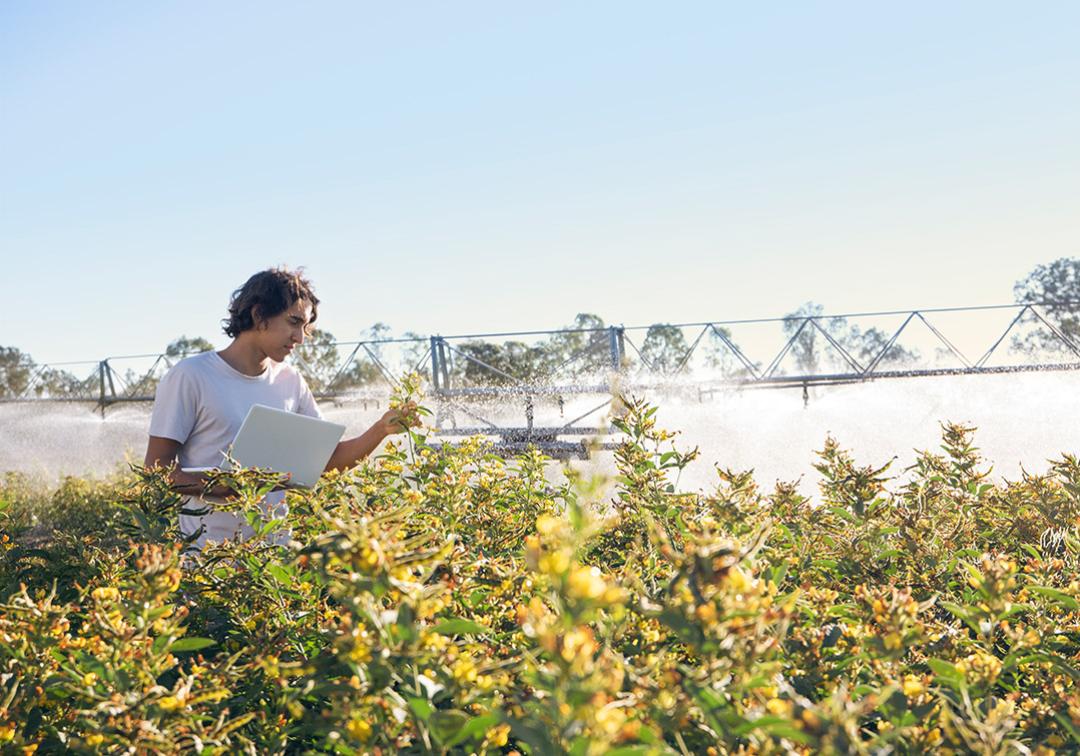
Careers
Career opportunities in agricultural science
4-minute read
Stories
See all stories
Careers
Career opportunities in agricultural science
4-minute read
How you'll learn
Your learning experiences are designed to best suit the learning outcomes of the courses you choose.
- Lectures
- Tutorials
- Work placements
- Research experience
- Laboratory work
- Fieldwork
- Workshops
What you'll study
At UQ, subjects are called 'courses'. Here's a sample of the courses you could study:
- Food for a Healthy Planet
- Land Use and Management
- Natural Resource Management
- The Soil Environment
Keep up to date
Sign up to get information about applying and studying at UQ.


